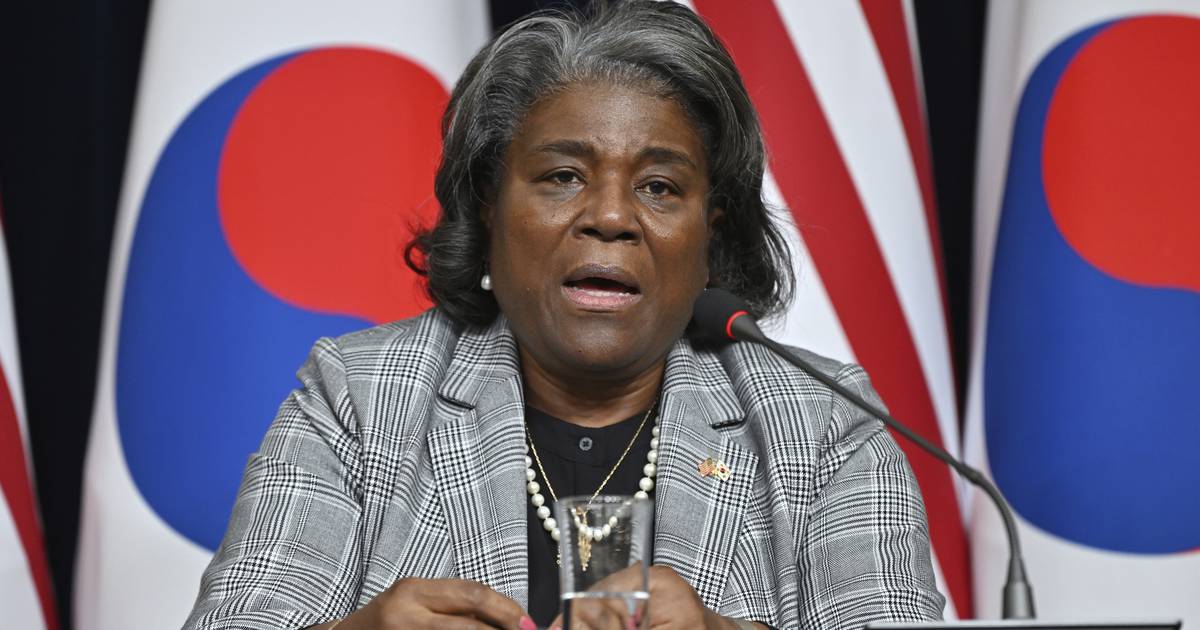The United States and its allies are considering options “both inside and outside the UN system” to create a new mechanism to monitor North Korea's nuclear weapons program, the US ambassador to the United Nations said Wednesday.
Russia vetoed a United Nations resolution last month, eliminating U.N. expert oversight of compliance with Security Council sanctions against North Korea.
That caused western accusations that Moscow was trying to hide its arms purchases from North Korea for its war in Ukraine.
“I look forward to dealing with both the Republic of Korea and Japan, but also with like-minded (countries), about trying to develop options both within the United Nations and outside the United Nations.
Moscow and Beijing thwart US attempts to tighten sanctions
The issue here is that We cannot allow a vacuum at work what the committee of experts was doing,” said the United States ambassador, Linda Thomas-Greenfield, at a press conference in Seoul, in which she used the official name of South Korea.
Thomas-Greenfield did not give details about Washington's talks with allies and other partners, such as whether it would be more likely to establish an alternative monitoring system through the United Nations General Assembly or with an independent body outside the UN.
The ambassador met on Tuesday with the South Korean Foreign Minister Cho Tae-yuland the two discussed “next steps to ensure a continuation of independent and reliable reporting” on North Korea’s illicit weapons activities, according to his office.
Thomas-Greenfield said it was clear that Russia and China, which abstained from voting on the U.N. resolution vetoed by Moscow, would continue to try to block international efforts to maintain oversight of U.N. sanctions against Pyongyang.
He also criticized Russia for violate those sanctions with their alleged acquisitions of North Korean weaponsand China for preventing North Korea from being held accountable.
Moscow and Beijing have thwarted U.S.-led attempts to tighten U.N. sanctions on North Korea over its increasing ballistic missile tests since 2022, underscoring a rift between permanent members of the Security Council that has worsened due to Russia's war in Ukraine.
“I don't expect them to cooperate or agree to any efforts “What we do to find another way, but that is not going to prevent us from finding that way for the future,” said the diplomat.
Thomas-Greenfield also briefly responded to questions about tensions in the Middle East. When asked about the Palestinian Authority's request for full UN membership, she said a resolution supporting that request would not contribute to finding a two-way solution. states in the conflict between Israelis and Palestinians.
“President Biden has firmly said that we support a two-state solution to resolve the situation in the Middle East, where the Palestinians will have their own state and Israel will be secure in its state, and we are working on the ground to get there as quickly as possible,” he said.
“We don't believe that having a resolution in the Security Council is necessarily going to lead us to a situation where we can find a … two-state solution going forward,” he added.
He Security Council It imposed sanctions after North Korea's first nuclear explosion test in 2006, and tightened them over the years in a total of 10 resolutions that sought—for now, without success—to reduce funds and stop its nuclear and missile programs.
The latest sanctions were approved in the council in December 2017. The Security Council established a committee to oversee the sanctions and the mandate of its expert committee to investigate breaches had been renewed for 14 years, until last month.
Before last month's vote, the Russian ambassador to the United NationsVassily Nebenzia, told the Security Council that Western countries were trying to “suffocate” North Korea and that sanctions were losing their “relevance” in preventing the proliferation of nuclear weapons in the North.
In its most recent report presented last month, the committee of experts said it was investigating 58 alleged North Korean cyberattacks between 2017 and 2023 valued at about $3 billion, money that reportedly helped finance its weapons development.

